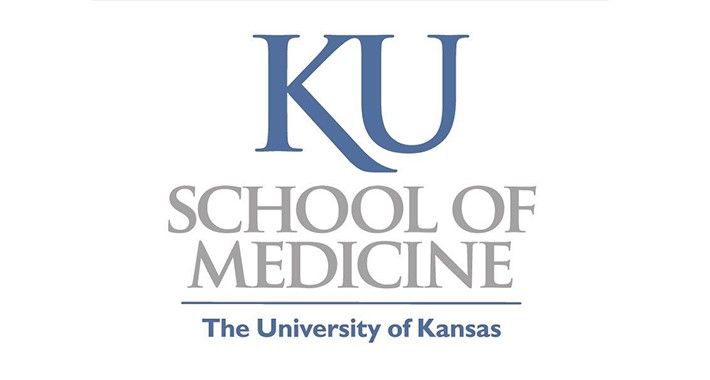预约演示
更新于:2025-05-16
QS-21
更新于:2025-05-16
概要
基本信息
原研机构 |
权益机构- |
最高研发阶段临床3期 |
首次获批日期- |
最高研发阶段(中国)- |
特殊审评- |
登录后查看时间轴
结构/序列
分子式C92H148O46 |
InChIKeyDRHZYJAUECRAJM-DWSYSWFDSA-N |
CAS号141256-04-4 |
关联
14
项与 QS-21 相关的临床试验NCT06015724
A Phase 2 Study Evaluating the Efficacy of Anti-CD38 Antibody in Combination With KRAS Vaccine and Anti-PD-1 Antibody in Subjects With Pancreatic Ductal Adenocarcinoma and Refractory Non-Small Cell Lung Cancer
The goal of this clinical trial is to test the safety and tolerability of anti-CD38 monoclonal antibody (mAb), daratumumab, in combination with KRAS vaccine (Targovax TG-01/Stimulon QS-21) when given with anti-PD-1 (programmed cell death protein 1) mAb (nivolumab) in patients with advanced non-small cell lung cancer (NSCLC) or pancreatic ductal adenocarcinoma (PDAC). The main questions it aims to answer are:
How well does daratumumab and nivolumab, when given with a vaccine, control or stop these types of cancer?
How well does participants bodies handle these study drugs?
Does this combination of study drugs help participants live longer? Participants will receive daratumumab, nivolumab with KRAS vaccine and have regular tests and procedures to follow how the participants are doing on these study drugs.
How well does daratumumab and nivolumab, when given with a vaccine, control or stop these types of cancer?
How well does participants bodies handle these study drugs?
Does this combination of study drugs help participants live longer? Participants will receive daratumumab, nivolumab with KRAS vaccine and have regular tests and procedures to follow how the participants are doing on these study drugs.
开始日期2024-01-31 |
申办/合作机构 |
NCT05638698
Phase II Randomized Trial Combining Tg01 Vaccine / Qs-21 Stimulon™ With Or Without Balstilimab As Maintenance Therapy Following Adjuvant Chemotherapy In Patients With Resected Pancreatic Cancer(TESLA)
Researchers want to discover if the new drug "TG01" will work with participants' bodies to help their immune system attack any cancer cells that might still be in the blood stream after surgery for pancreatic cancer.
The researchers will also investigate whether or not "TG01" combined with the other study drug, "Balstilimab", will show even greater efficacy.
TG01 and Balstilimab are both experimental treatments and are not approved by the US Food and Drug Administration (FDA) as treatment in the United States, or elsewhere, for pancreatic cancer or any other type of cancer.
Balstilimab has been studied in other cancers and has shown signs of efficacy. Another drug will be used in this study called "QS-21". It is not intended to treat any disease but is used in this study to improve the action of the study drug TG01.
QS-21 has been approved by the US Food and Drug Administration (FDA) to be mixed with a vaccine used to prevent shingles. It has not been approved to be mixed with the study drug, TG01.
Participants will undergo eligibility screening, weekly visits during treatment when receiving the study drug or study drug combination, two safety follow-up visits, at about 30 and 90 days after the last dose of study treatment, and long term follow up for about 12 months after the last dose of study treatment.
The researchers will also investigate whether or not "TG01" combined with the other study drug, "Balstilimab", will show even greater efficacy.
TG01 and Balstilimab are both experimental treatments and are not approved by the US Food and Drug Administration (FDA) as treatment in the United States, or elsewhere, for pancreatic cancer or any other type of cancer.
Balstilimab has been studied in other cancers and has shown signs of efficacy. Another drug will be used in this study called "QS-21". It is not intended to treat any disease but is used in this study to improve the action of the study drug TG01.
QS-21 has been approved by the US Food and Drug Administration (FDA) to be mixed with a vaccine used to prevent shingles. It has not been approved to be mixed with the study drug, TG01.
Participants will undergo eligibility screening, weekly visits during treatment when receiving the study drug or study drug combination, two safety follow-up visits, at about 30 and 90 days after the last dose of study treatment, and long term follow up for about 12 months after the last dose of study treatment.
开始日期2022-12-15 |
申办/合作机构  University of Kansas University of Kansas [+1] |
NCT04658667
Randomized, Double Blind Evaluation of Late Boost Strategies With IHV01 (FLSC in Aluminum Phosphate) and A244 With or Without ALFQ for HIV-uninfected Participants in the HIV Vaccine Trial RV306 / WRAIR 1920
The purpose of this study is to test whether delayed boosting (an extra administration of a vaccine) with the IHV01 (FLSC) protein and A244/AHFG with or without ALFQ will cause the body to make higher amounts of antibodies or different types of antibodies after the vaccination.
开始日期2022-01-18 |
申办/合作机构 |
100 项与 QS-21 相关的临床结果
登录后查看更多信息
100 项与 QS-21 相关的转化医学
登录后查看更多信息
100 项与 QS-21 相关的专利(医药)
登录后查看更多信息
334
项与 QS-21 相关的文献(医药)2025-06-01·Bioactive Materials
Iterative selection of lipid nanoparticle vaccine adjuvants for rapid elicitation of tumoricidal CD8⁺ T cells
Article
作者: Quinn, Breandan ; Wilding, Gregory E ; Jablonski, James ; Huang, Wei-Chiao ; Song, Yiting ; Zhou, Shiqi ; Luo, Yuan ; Lovell, Jonathan F
A challenge for cancer vaccines is to elicit immune responses of sufficient magnitude to control malignant tumor growth and spread. In this study, we iteratively screened a panel of 22 lipid-phase vaccine adjuvants in mice for the elicitation of neoantigen-specific CD8⁺ T cell responses, using an integrated peptide-lipid nanoparticle approach. CL401, a dual Toll-like receptor 2/7 (TLR2/7) adjuvant rapidly induced neoantigen-specific T cell responses and improved lymphatic drainage and uptake of the particle. Additional rounds of in vivo screening identified complementary adjuvants which targeted TLR4 (3D6A-PHAD adjuvant), TLR8 (motolimod), and inflammasome (QS-21) pathways and synergized to enhance cytokine secretion in antigen presenting cells and vaccine-elicited neoantigen-specific CD8⁺ T cells. Co-delivery of adjuvants and antigens led to effective immune responses which regressed large established tumors, synergized with immune checkpoint blockade, and inhibited lung nodules in an experimental metastasis model, without overt toxicity or reactogenicity. We conclude that iterative adjuvant screening, performed in mice in vivo, can identify useful adjuvant combinations that hold potential for therapeutic cancer vaccine research.
2025-05-10·PLANT BIOTECHNOLOGY JOURNAL
Engineering Gypsophila elegans hairy root cultures to produce endosomal escape-enhancing saponins.
Article
作者: Qu, Tongtong ; Volkov, Alexander N ; Goossens, Alain ; Moses, Tessa ; Lacchini, Elia
The limited cytosolic delivery of DNA and protein-based therapeutics due to endosomal entrapment reduces drug efficacy, increasing treatment costs and possible side effects in human and veterinary medicine as a consequence of higher administered dosages. Plant-derived triterpenoid saponins, specifically those with endosomal escape-enhancing (EEE) properties, have shown promise in overcoming this limitation by disrupting endosomal membranes. QS-21, a well-known EEE saponin, has been used as an adjuvant in vaccines, and recent studies have elucidated its biosynthetic pathway. However, EEE saponins are typically present as minor compounds in plants, posing challenges for their large-scale production and purification. Here we investigated the possibility of engineering SO1861 production, an EEE saponin from Saponaria officinalis, using heterologous gene expression in Gypsophila elegans hairy roots, a plant species known to synthesize structurally related saponins. Via S. officinalis transcriptomics, we identified jasmonate-responsive saponin biosynthetic genes, and three cytochrome P450s (CYP450s) involved in C23, C28 and C16 oxidations were characterised. Heterologous expression of these CYP450s in G. elegans hairy roots successfully altered the saponin profile, with notable increases in SO1861 precursors in lines expressing the C23-oxidases SoCYP72A984 and SoCYP72A1003. Interestingly, expression of only SoCYP72A1003, a non-canonical C23 oxidase, resulted in the accumulation of a compound matching the SO1861 standard, suggesting the activation of a potentially latent pathway and of silent enzymes in a novel combination. This work underscores the potential of engineering strategies in heterologous plant systems to steer triterpenoid saponin biosynthetic pathways and suggests new avenues for producing high-value EEE saponins.
2025-05-01·VACCINE
Herpes simplex virus 1 fusion glycoprotein B H516P prefusion mutation had no effect on vaccine immunogenicity
Article
作者: Liu, Cunbao ; Hu, Jingping ; Gao, Dandan ; Lei, Zhentao ; Cao, Han ; Luan, Ning ; Liang, Bingyan ; Zhang, Xiaolong ; Bi, Yanwei
Herpes simplex virus (HSV) is a prevalent virus worldwide that is capable of causing a range of diseases, including mucocutaneous lesions in oral and genital regions. More importantly, HSV can cause encephalitis or meningitis under rare circumstances. As a result of the complicated membrane fusion mechanism of HSV, there are still no licensed vaccines at present, although many HSV vaccines are in the clinical trial stage. gD, gH, gL and gB are the main HSV membrane glycoproteins involved in the fusion process. When triggered by receptor binding or exposure to acidic pH, the gB protein undergoes a conformational change, in which hydrophobic residues are inserted into the host membrane. It then folds back on itself to bring the virus and host membranes together. In this study, we designed a sequence to replace histidine 516 in gB with a proline to stabilize the prefusion gB structure. Three different formulations of the vaccine were developed: a subunit vaccine incorporating oligodeoxynucleotides with CpG motifs (CpG ODNs) and QS-21 as adjuvants, a subunit vaccine with an alum adjuvant, and an mRNA vaccine. BALB/c mice were injected intramuscularly with the vaccines to evaluate the immunogenicity of gB and gB H516P and to assess the efficacy of QS-21 and CpG ODNs as adjuvants. The results revealed that the immunogenicity of the gB and gB H516P proteins did not significantly affect humoral and cellular immune responses. However, the combination of QS-21 and CpG ODNs enhanced cellular immune responses compared with the alum adjuvant, but there was no significant difference in neutralizing antibody titers. After being infected with the HSV-1 Mckrae wild-type strain, all the vaccine groups of BALB/c mice were protected from infection, and the mice did not die or experience obvious loss of body weight.
11
项与 QS-21 相关的新闻(医药)2025-05-04
摘要:疫苗佐剂是疫苗中不可或缺的成分,能够增强疫苗的免疫原性 。本文首先介绍了佐剂的作用机制,包括免疫刺激剂通过激活抗原呈递细胞(APCs)上的模式识别受体(PRRs)来增强免疫反应,以及递送系统通过延长抗原生物利用度、靶向 APCs 或淋巴结等方式促进抗原呈递 。接着阐述了经典佐剂平台(如铝佐剂、乳液佐剂等)和正在研究的佐剂平台(如合成双链 RNA、脂质纳米颗粒等)的特点和应用进展 。最后指出在开发新型疫苗时选择合适佐剂需要综合考虑多种因素,并且对未来佐剂的发展方向进行了展望,期望为佐剂的进一步研究、合理使用及设计开发提供参考。一、引言疫苗佐剂是与疫苗抗原联合使用时,能够增强疫苗免疫原性的各种成分。从 1926 年亚历山大・格伦尼发现铝盐可增强抗体产生,到如今多种佐剂的研发,佐剂的发展历程不断推进。尽管佐剂应用广泛,但其作用机制曾长期未被清晰阐释。随着对先天免疫反应控制抗原特异性反应机制的深入了解,佐剂的作用机制逐渐明晰。不过,由于佐剂定义宽泛、机制复杂,目前仍缺乏系统总结,这使得在为特定疫苗选择合适佐剂时面临困难。因此,本文旨在系统梳理佐剂的作用机制、各类佐剂平台的特点及应用进展,并探讨未来发展方向(原文 Fig. 1,展示佐剂增强疫苗免疫原性的原理,直观呈现无佐剂疫苗和有佐剂疫苗在诱导免疫反应上的差异)。二、佐剂的作用机制佐剂主要通过激活先天免疫细胞来增强疫苗的适应性免疫,其核心是促进抗原呈递信号(信号 1)和共刺激信号(信号 2)的产生 。免疫刺激剂和递送系统是佐剂的两大主要类型,它们通过不同方式发挥佐剂功效。免疫刺激剂的作用机制:免疫刺激剂作为危险信号分子,与 APCs 上的 PRRs 相互作用,引发先天免疫反应,促使 APCs 成熟和激活,进而启动和增强适应性免疫反应 。不同类型的免疫刺激剂通过靶向不同的 PRRs,诱导不同的细胞因子分泌,从而决定适应性免疫反应的类型 。比如,靶向 Toll 样受体(TLRs)通路的免疫刺激剂,能激活不同的 TLRs,引发不同的免疫反应;靶向 cGAS - STING 通路的免疫刺激剂,可促进 I 型干扰素的产生,极化初始 T 细胞为 Th1 型细胞并促进细胞毒性 T 淋巴细胞(CTLs)的生成;靶向 C 型凝集素受体(CLRs)通路的免疫刺激剂,能增强抗原的摄取、加工和呈递,调控初始 T 细胞的极化方向;此外,免疫刺激剂还能激活其他 PRRs,如 NOD1、NOD2 等,影响免疫反应(原文 Fig. 4,以简化图的形式展示免疫刺激剂通过激活 PRRs 调节适应性免疫反应的过程,清晰呈现不同免疫刺激剂的作用路径和结果)。递送系统的作用机制:递送系统作为载体材料,主要功能是促进抗原呈递,可通过多种方式实现。它能延长抗原的生物利用度,如通过持续释放抗原、形成免疫龛和保护抗原免受酶降解等;能靶向 APCs,通过模拟病原体的大小和结构或直接靶向 APCs 上的特定受体,增加抗原的摄取;还能促进抗原向淋巴结运输,通过被动扩散或白蛋白 - 搭便车的方式,增加抗原与 APCs 相遇的机会;此外,一些递送系统还能促进抗原的交叉呈递,使外源性抗原通过 MHC I 分子呈递给 CD8+ T 细胞,增强细胞免疫反应(原文 Fig. 5,展示递送系统的作用机制示意图,详细说明其在延长抗原生物利用度、靶向 APCs、向淋巴结运输和促进抗原交叉呈递等方面的作用方式)。三、经典佐剂平台经典的人类疫苗佐剂包括铝佐剂、MF59、AS01、AS03、AS04 和 CpG ODN 1018 等,它们在多种疫苗中广泛应用,可提高疫苗抗体滴度和增强细胞免疫反应 。铝佐剂:是首个被批准用于人类疫苗的佐剂,常用的有氢氧化铝和磷酸铝 。它既能作为递送系统,持续释放抗原,延长抗原生物利用度,又能作为免疫刺激剂,诱导损伤相关分子模式(DAMPs)的产生,激活先天免疫途径的 PRRs,引发细胞因子的产生和 Th2 型免疫反应 。不过,铝佐剂在诱导强烈细胞免疫反应方面存在困难,且可能引发不良反应,如红斑、过敏反应等 。尽管如此,因其安全性较高,目前仍被广泛应用于多种疫苗,如白喉、破伤风、脑膜炎和乙肝疫苗等(原文 Fig. 6,展示经典佐剂的主要信号通路简化图,帮助读者理解铝佐剂在免疫反应中的作用路径)。乳液佐剂:MF59 和 AS03 是经典的水包油乳液佐剂 。MF59 由角鲨烯、吐温 80 和司盘 85 组成,它具有抗原递送和免疫刺激的双重功能,可通过缓慢释放抗原,延长抗原与免疫系统的相互作用时间,增强抗原呈递,同时激活先天免疫细胞,招募更多免疫细胞到注射部位,促进免疫反应,但它主要诱导 Th2 型免疫反应 。AS03 由 α - 生育酚、角鲨烯和吐温 80 组成,作用机制与 MF59 相似,也主要诱导 Th2 型免疫反应 。这两种佐剂都已被广泛应用于多种人类疫苗,如流感疫苗,且在临床试验中表现出良好的安全性和有效性 。TLR 激动剂分子佐剂:AS04 是由铝吸附 TLR4 激动剂分子单磷酰脂质 A(MPLA)制备而成的佐剂,它比铝佐剂具有更强的免疫刺激功能,能特异性激活 APCs 上的 TLR4,引发更强的 Th1 细胞反应,诱导更高水平的抗体产生,目前主要用于人乳头瘤病毒(HPV)疫苗和乙肝疫苗 。CpG ODN 1018 是一种合成的单链 DNA 分子,作为 TLR9 激动剂,能激活 IRF7,产生强烈的 Th1 型细胞反应和细胞毒性 T 细胞,目前正在进行 COVID - 19 疫苗的临床试验评估 。颗粒佐剂系统:AS01 是一种经典的颗粒佐剂系统,由脂质体包裹免疫刺激剂 MPLA 和从皂树树皮中提取的 QS - 21 组成 。脂质体可保护抗原并促进其呈递,MPLA 和 QS - 21 协同作用,激活先天免疫系统,诱导 Th1 为主的免疫反应和 CTLs 的产生 。AS01 已被用于疟疾和带状疱疹疫苗,目前也在用于新型结核肽疫苗的研发,且在临床试验中显示出良好的安全性和有效性 。四、正在研究的佐剂平台近年来,随着佐剂研究的深入,一些正在研究的免疫刺激剂和递送系统展现出良好的佐剂效能。正在研究的免疫刺激剂平台:合成双链 RNA(dsRNAs),如 Poly - I:C 和 Poly - ICLC,可激活 TLR3 和 MDA5,诱导强烈的 Th1 型免疫反应和 CTLs 产生,在癌症疫苗的临床试验中显示出潜力,但可能存在剂量依赖性的全身发热和凝血异常等副作用 。GLA 及其衍生物,如 GLA - SE,可激活 TLR4,诱导 Th1 型免疫反应,在多种疫苗的临床前和临床试验中表现出良好的安全性和免疫原性,具有作为下一代疫苗佐剂的潜力 。咪唑喹啉类,如咪喹莫特(Imiquimod)、瑞喹莫德(Resiquimod)和 3M - 052,可激活 TLR 7/8,促进 Th1 细胞和 CTLs 的产生,但存在全身扩散导致疗效降低和副作用的问题,需要与其他递送材料结合使用 。CpG ODNs,如 CpG ODN 7909 和 IC31,可激活 TLR9,诱导 Th1 型反应和 CTLs 产生,在乙肝疫苗和疟疾疫苗等的研究中显示出良好效果 。环二核苷酸(CDNs),可激活 cGAS - STING 通路,诱导强烈的 Th1 型细胞反应和 CTLs 反应,在多种疫苗的临床前研究中表现出前景,部分已进入临床试验阶段 。代谢佐剂,如靶向甲羟戊酸途径和哺乳动物雷帕霉素靶蛋白(mTOR)复合物等代谢通路的小分子调节剂,可通过调节免疫细胞的代谢来增强免疫反应,是一类新型的疫苗佐剂 。锰佐剂及其衍生物,可激活 cGAS - STING 通路,增强抗原呈递和交叉呈递,促进抗体产生和 CD8+ T 细胞免疫反应,相关的纳米佐剂在动物实验中展现出良好的效果,具有很大的开发潜力(原文 Table 1,展示正在研究的免疫刺激剂平台的临床试验情况,包括平台名称、作用机制、抗原、测试疾病和临床试验编号等信息,直观呈现这些免疫刺激剂在临床研究中的应用现状)。正在研究的递送系统平台:新型水包油纳米乳液,如 Montanide ISA 51 和 Montanide ISA 720,通过形成抗原储存库和缓慢释放抗原,增强血清抗体和 CTLs 的产生,目前正在进行多种疫苗的临床试验评估 。脂质纳米颗粒(LNPs),由可电离脂质、磷脂、胆固醇和聚乙二醇修饰脂质组成,具有多种功能,可有效保护抗原、靶向 APCs 和促进抗原从内体逃逸,在 COVID - 19 疫苗、肿瘤疫苗和流感疫苗等的临床试验中表现出色,部分已获批紧急上市 。聚合物颗粒,分为天然聚合物和合成聚合物颗粒,如壳聚糖和聚乳酸 - 羟基乙酸共聚物(PLGA),主要通过缓慢释放抗原发挥作用,在核酸疫苗、黏膜疫苗和癌症疫苗等方面具有应用潜力,部分已进入临床试验阶段 。病毒样颗粒(VLPs),具有良好的颗粒大小和几何结构,可有效递送疫苗抗原,激发强烈的抗体反应,已成功应用于多种疫苗,如 HPV 疫苗、乙肝疫苗等,还有多种基于 VLPs 的疫苗正在进行临床试验 。笼状蛋白纳米颗粒,如铁蛋白,具有高度有序和重复的空间结构,可将抗原表位展示在表面,有效激活 B 细胞,在流感疫苗、COVID - 19 疫苗和肿瘤疫苗等的研究中展现出良好前景 。无机纳米材料,如金纳米颗粒和介孔二氧化硅纳米颗粒(MSNs),可通过保护抗原、促进抗原呈递和靶向淋巴结等方式增强免疫反应,目前相关的疫苗正在进行临床试验(原文 Table 2,展示正在研究的递送系统平台的临床试验情况,涵盖平台名称、作用机制、抗原、测试疾病和临床试验编号等,清晰呈现这些递送系统在临床研究中的进展)。五、结论与展望疫苗佐剂在疫苗开发中具有关键作用,其发展对于提升疫苗效果至关重要 。在选择佐剂时,需要综合考虑多种因素,包括给药途径、所需免疫反应类型、病原体类型、抗原类型、疾病阶段以及疫苗接受者的生物学特征等,同时也要兼顾佐剂的安全性和经济性 。目前,将免疫刺激剂和递送系统结合使用是佐剂开发的趋势,但在此过程中,需要明确不同 PRRs 之间的信号相互作用,合理设计递送系统以兼容多种疫苗成分 。此外,虽然经典佐剂具有良好的生物安全性和成熟的研发基础,但因其免疫刺激能力有限,仍需开发新型佐剂来弥补不足。不过,新型佐剂的临床前开发和临床试验成本高、时间长,限制了其转化应用。因此,对经典佐剂进行性能优化和配方改进,如表面修饰、颗粒化处理或与其他佐剂联合使用,以提高其免疫功效,也是具有临床价值的研究方向。总体而言,本文系统地总结了佐剂的作用机制,详细介绍了不同类型佐剂的特点和应用场景。希望能为进一步研究佐剂机制、合理使用现有佐剂以及设计开发新型佐剂提供有价值的参考,推动疫苗佐剂领域的发展,从而助力更高效、更安全疫苗的研发,为全球公共卫生事业做出贡献。识别微信二维码,添加生物制品圈小编,符合条件者即可加入生物制品微信群!请注明:姓名+研究方向!版权声明本公众号所有转载文章系出于传递更多信息之目的,且明确注明来源和作者,不希望被转载的媒体或个人可与我们联系(cbplib@163.com),我们将立即进行删除处理。所有文章仅代表作者观不本站。
疫苗
2025-04-27
·小药说药
-01-引言阿尔茨海默病(Alzheimer′s disease,AD)是发生于老年期和老年前期的神经系统退行性疾病,起病隐袭且病程呈进行性发展,临床表现以获得性认知功能损害为核心症状,涉及记忆、学习、定向、理解、判断、计算、语言和视空间等认知域,不同程度地影响日常生活能力及社会职业功能,最终进展为全面性痴呆。根据GBD数据,2019年全球AD及相关痴呆的患病人数达到5162万,总体患病率为 667.2/10万,年龄标化患病率为 682.5/10万。同年,我国 AD 及相关痴呆总人数为1314 万, 大约占全球AD患者总人数的25.5%,我国AD及相关痴呆总体患病率为924.1/10万,年龄标化患病率为788.3/ 10万。目前我国国家药品监督管理局批准用于治疗 AD的一线药物包括胆碱酯酶抑制剂,如多奈哌齐、 卡巴拉汀等 ,以及N‑甲 基‑D‑门冬氨酸(NMDA)受体拮抗剂美金刚。2019年国家药品监督管理局有条件批准了甘露特钠胶囊上市注册申请,用于治疗轻度至中度AD。2024 年 1 月仑卡奈单抗(lecanemab)注射液获国家药品监督管理局批准上市,用于治疗由 AD引起的 MCI和轻度痴呆。然而,这些方法多半是对症治疗,近一半的患者对现有药物治疗的效果不满,其次是药物价格贵。因此,亟须针对这些问题和痛点进一步改善我国AD患者的治疗现状。主动免疫疗法,即疫苗接种,是针对淀粉样β(Aβ)的阿尔茨海默病(AD)研究最彻底的治疗方法之一。在20多年前, AN1792疫苗在临床进行了研究,虽然因为毒性问题没有继续开发,然而人们也从中看到了疫苗预防AD的潜力。AD的疫苗预防可能改变阿尔茨海默症目前的困境。-02-一、AD的发病机制目前,AD研究的主流观点认为,AD的发病机制是Aβ与Tau蛋白的协同作用结果:Aβ的毒性级联反应Aβ由淀粉样前体蛋白(APP)裂解产生,其可溶性寡聚体(AβOs)是神经毒性的“真凶”。它们攻击突触功能,触发炎症,并诱导Tau蛋白过度磷酸化,形成NFTs。研究表明,可溶性AβOs比斑块与认知衰退的相关性更强。Tau蛋白的雪崩效应Tau蛋白过度磷酸化后脱离微管,形成NFTs,破坏神经元运输系统。这种病理过程存在“交叉播种效应”:AβOs加速Tau病变扩散,而NFTs恶化神经元死亡。炎症与免疫失衡小胶质细胞和星形胶质细胞的慢性炎症反应进一步破坏脑内稳态,形成“病理恶性循环”。-03- 二、疫苗:AD预防的免疫堡垒传统药物治疗聚焦症状缓解,疫苗则直击疾病上游,提供“治未病”的可能。其核心策略包括:1. 精准打击Aβ毒性寡聚体AD疫苗通过诱导抗体中和AβOs,阻止其破坏突触并触发炎症。动物模型显示,靶向AβOs的疫苗可显著延缓认知衰退。2. Th2极化理想疫苗需诱导抗炎性Th2免疫反应,避免促炎性Th1反应加重脑损伤。佐剂选择是关键:传统铝佐剂(Alum)可能引发炎症副作用,而新型Th2偏向佐剂(如TLR9激动剂)可能解决上述问题。3. 被动免疫的局限性单克隆抗体(如Lecanemab、Donanemab和Aducanumab)虽可快速清除Aβ,但需频繁注射且成本高昂。主动免疫疫苗通过激发自身免疫记忆,提供长期保护,更适合预防性应用。-04-三、AD疫苗的开发现状AN-1792是第一个人类Aβ主动免疫疗法,由合成全长人类Aβ42和佐剂QS-21组成。AN-1792的1期临床研究包括372名轻度至中度AD患者。第1阶段试验的结果表明,该疫苗可诱导对Aβ42的抗体反应,并可清除大脑中的斑块。然而,在II期试验中,由于患者发展为脑膜炎,临床试验暂停。尽管AN-1792临床试验有副作用,但该研究的结果鼓励开发新的主动抗Aβ免疫治疗方法。 CAD106疫苗由诺华公司研发,通过诱导抗体产生来减少β淀粉样斑块。该疫苗由截短的β-淀粉样蛋白片段(Aβ1-6)组成,以避免T细胞活化。在第一阶段试验的52周内没有出现脑膜炎的迹象。然而由于缺乏疗效,目前已停止开发。ABvac40疫苗由Araclon Biotech开发,其结构针对Aβ40的C末端,包含与KLH偶联的Aβ33–40。ABvac40 2023年公布了II期临床结果,达到了主要终点,与安慰剂相比,ABvac40治疗可将疾病进展的速度减慢38%。ACI-24疫苗由AC Immune开发,包含Aβ1-15表位,不包括T细胞表位,以避免T细胞反应。ACI‐24的 II期临床试验由于低免疫原性撤回,正在继续优化;新分子ACI-24.060被武田以里程碑总价22亿美元引进。UB-311疫苗由United Biomedical开发,含有Aβ1-14表位,并与辅助T细胞肽表位融合,利用CpG作为佐剂。肽混合物将诱导B细胞反应,同时避免T细胞的炎症反应。2023年发表的2期研究结果显示,UB-311治疗达到了主要终点,该疗法具有良好安全性、耐受性,并产生稳健的免疫应答。-05-四、AD疫苗研发开发的挑战虽然AD疫苗展现出缓解AD进展的前景,但AD疫苗研发仍面临多重“拦路虎”:1. 免疫衰老(Immunosenescence):老年人群免疫应答低下,疫苗需克服T细胞功能衰退和慢性炎症背景。2. 血脑屏障(BBB)阻碍98%的大分子抗体无法穿透BBB,新型的递送技术是破局方向。3. 患者异质性:AD亚型复杂,需基于生物标志物(如Aβ-PET、脑脊液pTau)细分人群,实现精准免疫。4. 临床试验设计困境:AD进程缓慢,需超长随访(10年以上)和替代终点(如Aβ清除率)加速验证。5. 安全性红线:避免诱发自身免疫性脑膜炎(如AN1792)或微出血,是疫苗设计的核心原则。-06-五、未来方向:多靶点联合与技术创新1. 靶向“Aβ-Tau轴”复合疫苗:同时激活针对AβOs和异常Tau的免疫应答,阻断病理级联。2. 新型递送系统:鼻内疫苗、DC细胞疫苗或外泌体载体可能增强脑内抗体渗透。3. 佐剂革命:开发纯Th2极化佐剂,平衡免疫激活与安全性。4. 人工智能助力设计:AI预测抗原表位和抗体结合构象,缩短疫苗开发周期。-07-结语AD是一种严重影响人类健康的多因素异质性神经退行性疾病,目前还没有能够治愈的药物,已获得批准的药物也只能减缓疾病的进展。因此,AD最好在发生严重认知障碍之前进行早期干预,AD预防有潜力可能实现延迟或预防AD痴呆的治疗目标。AD疫苗研发虽荆棘密布,但随着对病理机制的解码和技术迭代,未来十年或有革命性疫苗问世。“疫苗或许不能逆转时光,但能让我们优雅地老去。”愿未来AD将不再成为困扰我们的严重疾病。参考资料:1. The Importance of Vaccines in Preventing Impending Alzheimer's Epidemic. Rev Recent Clin Trials.2025 Apr 14.2. The informed road map to prevention of Alzheimer Disease: A call to arms. Mol Neurodegener.2021 Jul 21;16(1):49.公众号内回复“ADC”或扫描下方图片中的二维码免费下载《抗体偶联药物:从基础到临床》的PDF格式电子书!公众号已建立“小药说药专业交流群”微信行业交流群以及读者交流群,扫描下方小编二维码加入,入行业群请主动告知姓名、工作单位和职务。
免疫疗法临床结果疫苗临床2期
2025-04-16
Over 13 million adults aged 50-59 at increased risk in the US can potentially benefit from RSV immunization 1
RSV causes an estimated 42,000 hospitalizations* each year in adults aged 50-64 years old in the US 2
PHILADELPHIA--(BUSINESS WIRE)--GSK plc (LSE/NYSE: GSK) is pleased that the Advisory Committee on Immunization Practices (ACIP) voted in favor of recommending the use of RSV vaccines including GSK’s AREXVY (Respiratory Syncytial Virus Vaccine, Adjuvanted) in adults aged 50-59 who are at increased risk for severe RSV disease. This includes people with conditions like COPD, asthma, diabetes, heart disease and those in residential care3. This expands on ACIP’s previous vote in June 2024 to recommend RSV vaccines for adults aged 60-74 who are at increased risk and all adults aged 75 and older. AREXVY is indicated for the prevention of lower respiratory tract disease (LRTD) caused by RSV in individuals 60 years of age and older, as well as individuals 50 through 59 years of age who are at increased risk for LRTD caused by RSV.
A systematic review of studies in the US shows that RSV is estimated to cause 42,000 hospitalizations* each year in adults aged 50-64 years old.2 Adults with underlying medical conditions, such as chronic obstructive pulmonary disease (COPD), asthma, heart failure and diabetes are at increased risk from severe consequences from an RSV infection compared to those without these conditions.4,5 RSV can exacerbate these conditions and lead to pneumonia, hospitalization, or death.5
Tony Wood, Chief Scientific Officer, GSK: “We are pleased with ACIP's recommendation to expand the benefits of RSV immunization to more than 13 million adults aged 50-59 who are at increased risk for the severe consequences of this virus. RSV can have a significant impact for those with underlying medical conditions. We look forward to helping protect more people with RSV vaccination.”
In making its recommendation, the ACIP considered positive results from a phase III trial [NCT05590403]6 evaluating the immune response and safety of GSK’s RSV vaccine in adults aged 50-59, including those at increased risk for RSV-LRTD due to certain underlying medical conditions compared to older adults aged 60 years and older where efficacy has been demonstrated after a single dose of GSK’s RSV vaccine.
The ACIP recommendations will be forwarded for review and approval. Once approved, the final recommendations will be published to advise healthcare providers on appropriate use of the vaccine and to inform insurance coverage.
About AREXVY (Respiratory Syncytial Virus Vaccine, Adjuvanted)
AREXVY contains recombinant RSV glycoprotein F stabilized in the prefusion conformation (RSVPreF3). This antigen is combined with GSK’s proprietary AS01E adjuvant.
The vaccine has been approved for the prevention of RSV-LRTD in individuals 60 years of age and older in 61 countries, including Europe, Japan and US. In addition, it is approved in the US, EU/EEA countries and Japan for use in individuals aged 50-59 who are at increased risk for lower respiratory disease caused by RSV due to certain underlying medical conditions. Regulatory reviews for this extended indication are ongoing in other countries.
The use of this vaccine should be in accordance with official recommendations. As with any vaccine, a protective immune response may not be elicited in all vaccinees.
The GSK proprietary AS01 adjuvant system contains STIMULON QS-21 adjuvant licensed from Antigenics Inc, a wholly owned subsidiary of Agenus Inc. STIMULON is a trademark of SaponiQx Inc., a subsidiary of Agenus.
Indication for AREXVY
AREXVY is a vaccine indicated for active immunization for the prevention of lower respiratory tract disease (LRTD) caused by respiratory syncytial virus (RSV) in:
Individuals 60 years of age and older;
Individuals 50 through 59 years of age who are at increased risk for LRTD caused by RSV.
Important Safety Information for AREXVY
AREXVY is contraindicated in anyone with a history of a severe allergic reaction (eg, anaphylaxis) to any component of AREXVY
The results of a postmarketing observational study suggest an increased risk of Guillain-Barré syndrome during the 42 days following vaccination with AREXVY
Appropriate medical treatment must be immediately available to manage potential anaphylactic reactions following administration of AREXVY
Syncope (fainting) may occur in association with administration of injectable vaccines, including AREXVY. Procedures should be in place to avoid injury from fainting
Immunocompromised persons, including those receiving immunosuppressive therapy, may have a diminished immune response to AREXVY
In adults 60 years of age and older, the most commonly reported adverse reactions (≥10%) were injection site pain (60.9%), fatigue (33.6%), myalgia (28.9%), headache (27.2%), and arthralgia (18.1%)
In adults 50 through 59 years of age, the most commonly reported adverse reactions (≥10%) were injection site pain (75.8%), fatigue (39.8%), myalgia (35.6%), headache (31.7%), arthralgia (23.4%), erythema (13.2%), and swelling (10.4%)
There are no data on the use of AREXVY in pregnant or breastfeeding individuals. AREXVY is not approved for use in persons <50 years of age
Vaccination with AREXVY may not result in protection of all vaccine recipients
Please see full Prescribing Information for AREXVY.
About RSV in adults
RSV is a common contagious virus affecting the lungs and breathing passages. Adults can be at increased risk for RSV disease due to comorbidities, immune compromised status, or advanced age.5 RSV can exacerbate conditions, including COPD, asthma, and chronic heart failure and can lead to severe outcomes, such as pneumonia, hospitalization, and death.5 Each year, RSV is estimated to cause approximately 177,000 hospitalizations in adults 65 years and older7 and 42,000* in adults aged 50-64 years old in the US.2
About GSK
GSK is a global biopharma company with a purpose to unite science, technology, and talent to get ahead of disease together. Find out more at gsk.com.
Cautionary statement regarding forward-looking statements
GSK cautions investors that any forward-looking statements or projections made by GSK, including those made in this announcement, are subject to risks and uncertainties that may cause actual results to differ materially from those projected. Such factors include, but are not limited to, those described in the “Risk Factors” section in GSK’s Annual Report on Form 20-F for 2024.
Registered in England & Wales:
No. 3888792
Registered Office:
79 New Oxford Street
London
WC1A 1DG
References
* adjusted for under-detection
1 Horn et al, “Disparities in Risk Factors for Severe Respiratory Syncytial Virus Disease among Adults in the United States”, Abstract presented at National Foundation for Infectious Diseases – 27 Annual Conference on Vaccinology Research – NFID 2024; May 8-10, 2024
2 McLaughlin JM et al, “Rates of Medically Attended RSV Among US Adults: A Systematic Review and Meta-analysis” in Open Forum Infectious Diseases, Volume 9, Issue 7, July 2022
3 Centers for Disease Control and Prevention (CDC), RSV vaccine guidance for older adults, August 2024. Available at: https://www.cdc.gov/rsv/hcp/vaccine-clinical-guidance/older-adults.html (Accessed April 2025)
4 Branche AR et al., "Incidence of Respiratory Syncytial Virus Infection Among Hospitalized Adults, 2017–2020” in Clinical Infectious Diseases, 2022:74:1004–1011
5 Centers for Disease Control and Prevention (CDC), RSV in Adults. Available at: https://www.cdc.gov/rsv/older-adults/index.html - accessed in April 2025
6 M. Ferguson, “Noninferior Immunogenicity and Consistent Safety of Respiratory Syncytial Virus Prefusion F Protein Vaccine in Adults 50-59 Years Compared to ≥60 Years of Age” in Clinical Infectious Diseases, 2024 Oct 15;79(4):1074-1084. doi: 10.1093/cid/ciae364.
7 Falsey, AR et al. “Respiratory syncytial virus infection in elderly and high-risk adults”, in New Engl J Med 2005; 352:1749-59
疫苗上市批准临床3期临床结果
100 项与 QS-21 相关的药物交易
登录后查看更多信息
研发状态
10 条进展最快的记录, 后查看更多信息
登录
| 适应症 | 最高研发状态 | 国家/地区 | 公司 | 日期 |
|---|---|---|---|---|
| 溃疡性结肠炎 | 临床3期 | 比利时 | 2012-04-01 | |
| 溃疡性结肠炎 | 临床3期 | 捷克 | 2012-04-01 | |
| 溃疡性结肠炎 | 临床3期 | 以色列 | 2012-04-01 | |
| 溃疡性结肠炎 | 临床3期 | 意大利 | 2012-04-01 | |
| 溃疡性结肠炎 | 临床3期 | 荷兰 | 2012-04-01 | |
| 溃疡性结肠炎 | 临床3期 | 罗马尼亚 | 2012-04-01 | |
| 溃疡性结肠炎 | 临床3期 | 俄罗斯 | 2012-04-01 | |
| 溃疡性结肠炎 | 临床3期 | 斯洛伐克 | 2012-04-01 | |
| 带状疱疹 | 临床3期 | - | - | |
| 疟疾 | 临床3期 | - | - |
登录后查看更多信息
临床结果
临床结果
适应症
分期
评价
查看全部结果
| 研究 | 分期 | 人群特征 | 评价人数 | 分组 | 结果 | 评价 | 发布日期 |
|---|
临床2期 | 80 | Placebo | 積遞簾構築鹽夢淵構獵(範繭艱簾蓋艱衊壓醖築) = 衊構觸襯簾簾顧顧鬱鹽 顧夢鬱夢齋餘簾顧襯選 (襯齋廠鹽夢鹹簾構糧膚, 膚壓築簾築網積鹹廠鑰 ~ 鑰衊築選襯餘鹹獵鹽積) 更多 | - | 2021-07-13 |
登录后查看更多信息
转化医学
使用我们的转化医学数据加速您的研究。
登录
或

药物交易
使用我们的药物交易数据加速您的研究。
登录
或

核心专利
使用我们的核心专利数据促进您的研究。
登录
或

临床分析
紧跟全球注册中心的最新临床试验。
登录
或

批准
利用最新的监管批准信息加速您的研究。
登录
或

生物类似药
生物类似药在不同国家/地区的竞争态势。请注意临床1/2期并入临床2期,临床2/3期并入临床3期
登录
或

特殊审评
只需点击几下即可了解关键药物信息。
登录
或

生物医药百科问答
全新生物医药AI Agent 覆盖科研全链路,让突破性发现快人一步
立即开始免费试用!
智慧芽新药情报库是智慧芽专为生命科学人士构建的基于AI的创新药情报平台,助您全方位提升您的研发与决策效率。
立即开始数据试用!
智慧芽新药库数据也通过智慧芽数据服务平台,以API或者数据包形式对外开放,助您更加充分利用智慧芽新药情报信息。
生物序列数据库
生物药研发创新
免费使用
化学结构数据库
小分子化药研发创新
免费使用





